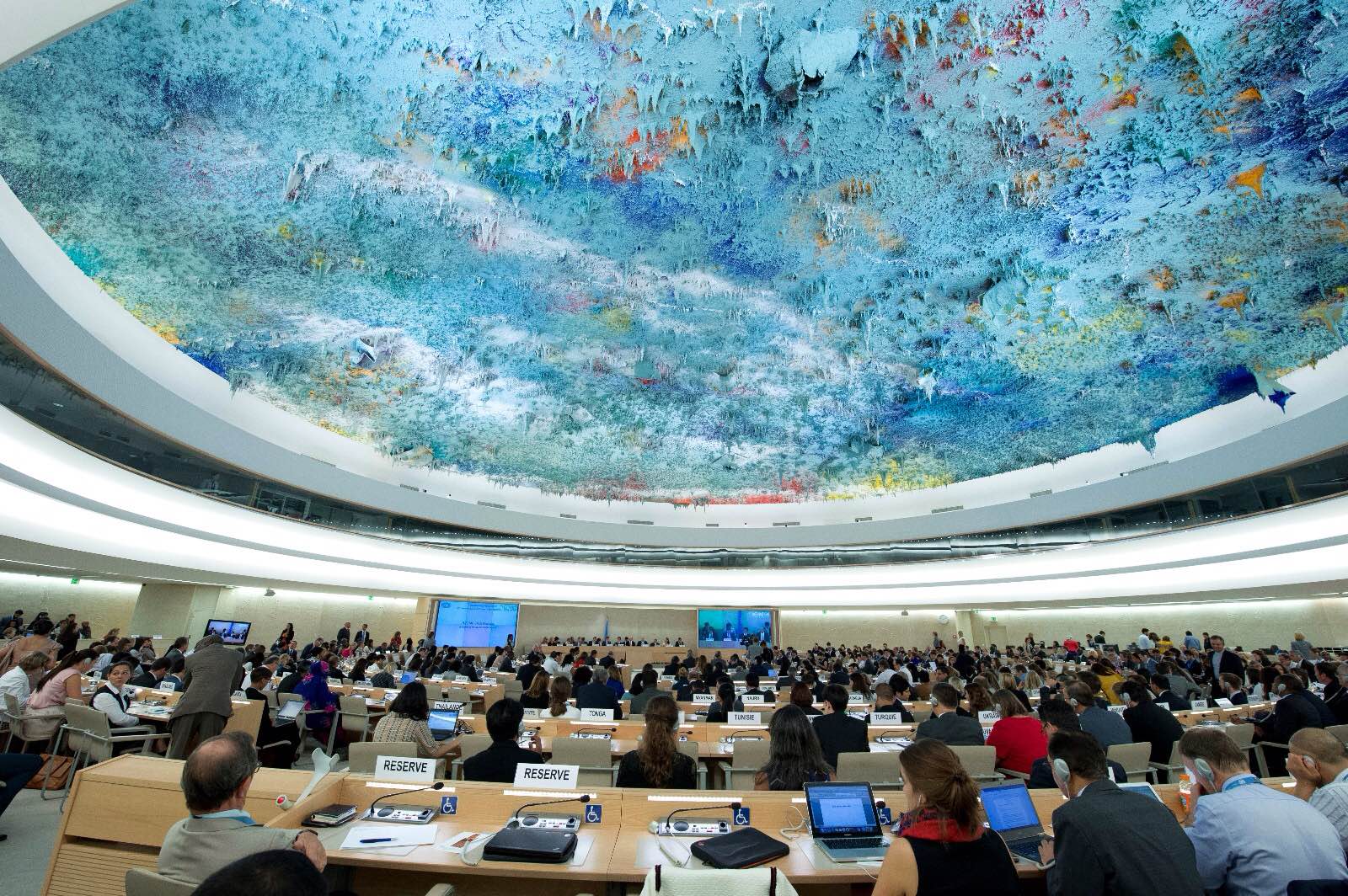On 20 September, Erin Sigmon, Advocacy Assistant at ADHRB, delivered an oral intervention under item 3 at the 33rd session of the United Nations Human Rights Council in Geneva on discrimination against the Bedoon population in Kuwait. Please continue reading for full remarks or click here to download a PDF.
Before I begin my intervention, on behalf of Americans for Democracy & Human Rights in Bahrain and our coalition of NGOs, we would like to express our deep condolences to the family of the Kuwaiti Bedoon human rights activist Nasser al-Ras, who died earlier today. Al-Ras suffered severe torture by the Bahraini government for standing up for universal human rights, and his commitment to the cause of freedom and dignity will not be forgotten.
Madam Rapporteur,
IDO, together with Americans for Democracy & Human Rights in Bahrain, would like to raise our concerns regarding systematic policies of discrimination against the indigenous stateless peoples, known as “Bedoon” in Gulf Cooperation Council.
There are approximately 112,000 Bedoon residents in Kuwait, who do not hold Kuwaiti citizenship. The Bedoon are thus considered illegal residents in their country, despite many having lived in Kuwait since long before the Kuwaiti state was founded. Kuwaiti law does not outline any clear path to citizenship for Bedoon populations.
Because Bedoon lack official citizenship documentation and are considered illegal residents, they face social, political, and economic barriers. Bedoon populations face obstacles in obtaining public services, such as state medical care and attending state-funded schools. Bedoon are often forced to work for lower wages than those who enjoy citizenship. And, because they are considered illegal, Bedoon cannot participate in any political processes, thus denying them representation in Kuwaiti government.
The Kuwaiti government has further prevented Bedoon from efforts to advocate for their right to citizenship. Bedoon are not allowed judicial recourse to argue their cases for citizenship. Kuwaiti law makes it illegal for Bedoon to protest, and efforts to do so have at times been met with a violent response from security forces. The Kuwaiti government has also subjected a number of protestors to arbitrary detention.
Madam Rapporteur, the deprivation of citizenship for indigenous Bedoon populations does not meet international human rights standards and is in contravention to a number of treaties to which Kuwait has acceded. What measures can the State of Kuwait take in order to support and protect the rights of the indigenous Bedoon people?
Thank You.





